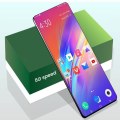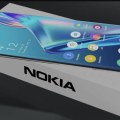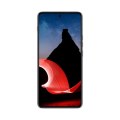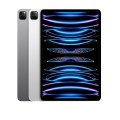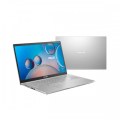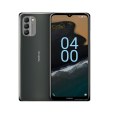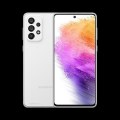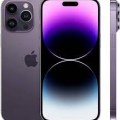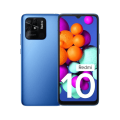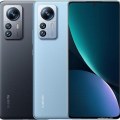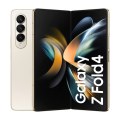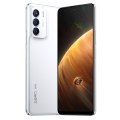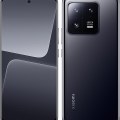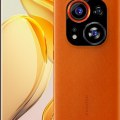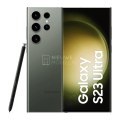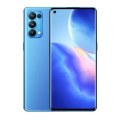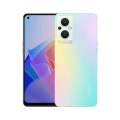- Home
- All Products
- Mobiles
- Nokia X30 5G price in Bangladesh
Nokia X30 5G price in Bangladesh
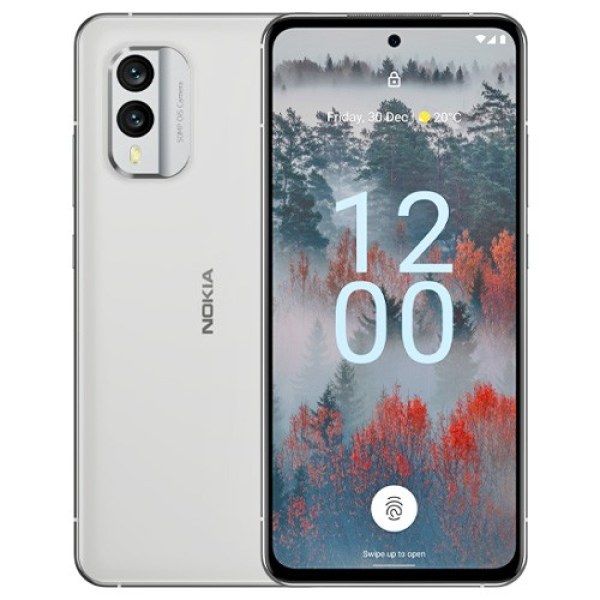




-
CPU: Octa-core (2x2.2 GHz Kryo 660 Gold & 6x1.7 GHz Kryo 660 Silver)
-
RAM: 6GB RAM/ 8GB RAM
-
Storage: 128GB 6GB RAM, 256GB 8GB RAM -UFS 2.2 - 128GB UFS 3.0 - 256GB
-
Display: AMOLED, 90Hz, 450 nits (typ), 700 nits (peak)
-
Camera: 50 MP, f/1.9, (wide), 1/1.56", 1.0µm, PDAF, OIS 13 MP, f/2.4, 123˚ (ultrawide), 1/3.06"
-
OS: Android 12
Nokia X30 5G Price and Specifications
Nokia X30 5G price in Bangladesh starts from BDT. 54,000 equivalent $540.00 the phone one of the most sustainable and eco-friendly smartphones around. Why should this matter? Because this smartphone is capable of just as much, if not more than some of the best flagship releases in recent years and has not compromised on quality at all. If Nokia can continue to make dependable smartphones almost entirely from recycled materials, there’s no excuse for other manufacturers not to follow suit, pushing the limits of smartphone life expectancy. In short: it’s a reliable phone that can keep up, but there’s nothing too special about this mid-range device.more
Nokia X30 5G price in Bangladesh is quite high but it has many cool features, but the main selling point without a doubt appears to be the environmentally friendly factor of the phone, and how its build and manufacture comprise almost entirely recyclable materials to reduce waste in production and promote sustainable technology. 1
The Nokia X30 5G relies on the pretty high 90hz refresh rate of its 6.43” full HD AMOLED Corning Gorilla Glass Victus flat screen display, to optimize the browsing experience for users, displaying visuals in high quality while maintaining adequate speeds to keep up with streaming habits.
Nokia X30 5G Price and Specifications
Nokia also has a newly introduced 3-3-3 promise and benefit for customers, that covers the X30 5G handset, and pledges that the company will cover 3 years of security patches, monthly security updates, and OS updates, plus include a 3-year manufacturer warranty with its devices.
This ensures that the Nokia X30 5G fully covered and functioning securely in all areas up until at least the Android 15 rollout we can expect in a few years’ time.
The Nokia X30 5G has a pretty impressive rear dual-camera unit that comprises a wide 50-megapixel f/1.8 main PureView camera, as well as a 13-megapixel Capture Fusion f/2.4 ultra-wide camera. The latest features on the X30 and its camera systems feature multiple shooting modes that include Tripod mode, Night mode 2.0, AI Dark Vision, and AI Portrait.
Camera
Nokia’s innovative Capture Fusion software on the 13MP camera supposedly brings the same power of the main 50MP camera to the ultrawide shots that are captured, by simultaneously taking a picture with both cameras, and then fusing the images together to achieve a better center area detail.
Both of these cameras on the X30 are protected by scratch-resistant Corning Gorilla Glass, with DX plus. The en is to allow for 98% of all light to enter through the lens.
Specification
General
| Price | BDT 54,000.00 |
| Device Type | Smartphone |
| Model | Nokia X30 |
| Announced | 01 September, 2022 |
| Released | 21 November, 2022 |
| Status | Available |
Design
| Type Design Type called form factor refers to a mobile phone's size, shape, and style as well as the layout and position of major components of phone. There are three major form factors seen in mobile phones => bar phones, folding phones and sliding phones. | Bar |
| Dimensions |
158.9 x 73.9 x 8 mm (6.26 x 2.91 x 0.31 in) |
| Weight | 185 g (6.53 oz) |
| Body Build | Glass front (Gorilla Glass Victus), aluminum frame, plastic back |
| Colors | Cloudy Blue, Ice White |
Display
| Display Type Display Technology => A number of display technologies and types used in mobile phones => TFT (Thin Film Transistor), IPS (In-Place Switching), OLED (Organic Light Emitting Diode), AMOLED (Active-Matrix Organic Light-Emitting Diode), Super AMOLED (an even advanced version of AMOLED), Resistive Touchscreen (Resistive touchscreens contain two layer of conductive material with a very small gap between them which acts as a resistance), Capacitive Touchsceen (Capacitive touchscreen technology consists of a layer of glass coated with a transparent conductor) | AMOLED, 90Hz, 450 nits (typ), 700 nits (peak) |
| Size | 6.43 inches, 99.8 cm2 (~85.0% screen-to-body ratio) |
| Resolution | 1080 x 2400 pixels, 20:9 ratio (~409 ppi density) |
| Pixel Density Pixel Density (PPI) is refers to the concentration of pixels on a particular display, measured in pixels per inch (ppi). Pixel density is calculated by dividing the diagonal pixel resolution of a display by its diagonal size, higher pixel density better display quality. | (~409 ppi density) |
Network
| 2G Network | GSM 850 / 900 / 1800 / 1900 - SIM 1 & SIM 2 (dual-SIM model only) |
| 3G Network |
HSDPA 850 / 900 / 1700(AWS) / 1900 / 2100 |
| 4G Network |
1, 2, 3, 4, 5, 7, 8, 12, 17, 20, 28, 32, 38, 39, 40, 41 |
| 5G Network |
1, 3, 5, 7, 8, 28, 38, 40, 41, 77, 78 SA/NSA/Sub6 |
| Speed | HSPA, LTE-A (CA), 5G |
| SIM SIM (Subscriber Identity Module) is a small card that contains mobile network subscriber's account information. This allows the phone using the card to attach to a mobile network. The SIM card is most commonly associated with GSM and UMTS mobile networks. Moving a SIM card from one phone to another allows a subscriber to switch mobile phones without having to contact their mobile network carrier. SIM cards can also be used by a phone to store limited amounts of data, such as phone numbers and text messages. | Nano SIM |
| Dual SIM |
Nano-SIM and eSIM or Dual SIM (Nano-SIM, dual stand-by) |
Media
| FM Radio | FM radio, RDS |
| Loudspeaker | Yes |
| Handsfree | Yes |
Camera
| MAIN CAMERA Camera is able to capture photographs and usually videos, The most important characteristics of a camera are the resolution (measured in megapixels), lens focus type (fixed or automatic), higher megapixel cameras are known to capture higher quality photos, but not always a good measurement of the photos quality. | Dual |
| Camera Types |
50 MP, f/1.9, (wide), 1/1.56", 1.0µm, PDAF, OIS 13 MP, f/2.4, 123˚ (ultrawide), 1/3.06" |
| Video | 1080p@30/60fps |
| Camera Features | LED flash, HDR, panorama |
| Image | LED flash, HDR, panorama |
| SELFIE CAMERA | 16 MP, f/2.4, (wide), 1/3.06", 1.0µm |
| Video Recording Modes | 1080p@30fps |
| Camera Features | LED flash, HDR, panorama |
Software
| Operating System OS => Every computer system run on a base software called Operating System (OS). Operating System controls all basic operations of the computer (such as smartphone, PDAs, tablet computers and other handheld devices). The Operating System allows the user to install and run third party applications (apps), apps are used to add new functionality to the device. | Android 12 |
Hardware
| Chipset Chipset is a group of integrated circuits designed to perform one or a more dedicated functions, often with real time computing constraints, Popular smartphones are equipped with more advanced embedded chipsets that can do many different tasks depending on their programming. | Qualcomm SM6375 Snapdragon 695 5G (6nm) |
| CPU CPU (Central Processing Unit) mostly known as processors, CPU processes instructions in order to carry out certain functions that make your device operate properly. Processors are often described as the brain of computers, smartphones and tablets, Smartphones and tablets rely on processors to carry out their every task, Processors are an incredibly important factor in selecting any type of computing device, including your smartphone. | Octa-core (2x2.2 GHz Kryo 660 Gold & 6x1.7 GHz Kryo 660 Silver) |
| GPU GPU (Graphics Processing Unit) is a single-chip processor designed to rapidly manipulate and alter memory to accelerate the creation of images in a frame buffer intended for output to a display, This includes things such as lighting effects, object transformations, and 3D motion. | Adreno 619 |
| RAM (Memory) RAM (Random Access Memory) is a type of computer memory that can be accessed randomly, any byte of memory can be accessed without touching the preceding bytes that allows information to be stored and accessed quickly from random locations. RAM is the most common type of memory found in computer systems, smartphones, tablets and other electronic devices. | 128GB 6GB RAM, 256GB 8GB RAM |
| Internal Storage Internal Storage is a data storage space (flash memory) mostly used in smartphones, tablets and other electronic devices where operating system, apps, music, photos, videos, files and other user data Is stored. | UFS 2.2 - 128GB /UFS 3.0 - 256GB |
| Card Slot Memory Card Slot is a special slot for inserting a memory card. Memory cards allow you to expand the phone's built-in memory, A memory card (sometimes called a flash memory card or a storage card) is a small storage medium used to store data such as text, pictures, audio, and video, for use on small, portable or remote computing devices such as mobile phones, mp3 players, digital cameras. | No |
| Sensors Sensors are electronic components that detects and responds to some type of input from the physical environment. The specific input could be light, heat, motion, moisture, pressure and location, The output is generally a signal that is converted to use in computing systems, a location sensor, such as a GPS receiver is able to detect current location of your electronic device. |
Fingerprint (under display, optical), accelerometer, gyro, proximity, compass |
Connectivity
| Bluetooth Bluetooth is a wireless communications technology for exchanging data between mobile phones, headsets, computers and other network devices over short distances without wires, Bluetooth technology was primarily designed to support simple wireless networking of personal consumer devices. | 5.1, A2DP, LE, aptX HD |
| Infrared Infrared connectivity is an old wireless technology used to connect two electronic devices. It uses a beam of infrared light to transmit information and so requires direct line of sight and operates only at close range. | |
| Wi-fi Wi-Fi is a popular wireless networking technology using radio waves to provide high-speed network connections that allows devices to communicate without cords or cables, Wi-Fi is increasingly becoming the preferred mode of internet connectivity all over the world. | Wi-Fi 802.11 a/b/g/n/ac/6, dual-band, Wi-Fi Direct |
| Wi-fi Hotspot | |
| USB | USB Type-C 2.0, USB On-The-Go |
| GPS GPS The Global Positioning System is a satellite-based radio navigation system, GPS permits users to determine their position, velocity and the time 24 hours a day, in all weather, anywhere in the world, In order to locate your position, your device or GPS receiver must have a clear view of the sky. | Yes |
| NFC NFC (Near field communication) is a set of standards for smartphones and similar devices to establish peer-to-peer radio communications with each other by touching them together or bringing them into proximity, usually no more than a few inches. |
Battery
| Battery Type Battery Type => Cell phones run on various kinds of batteries depending on the manufacturer, phone size or shape and features. There are basically four types of cell phone batteries => Lithium Polymer, Lithium Ion, Nickel Metal Hydride and Nickel Cadmium. | Li-Poly (Lithium Polymer) |
| Capacity Battery Capacity is a measure (typically in Amp-hr) of the charge stored by the battery, and is determined by the mass of active material contained in the battery. The battery capacity represents the maximum amount of energy that can be extracted from the battery under certain conditions. | Li-Po 4200 mAh, non-removable |
| Placement | 33W wired, PD3.0 |


